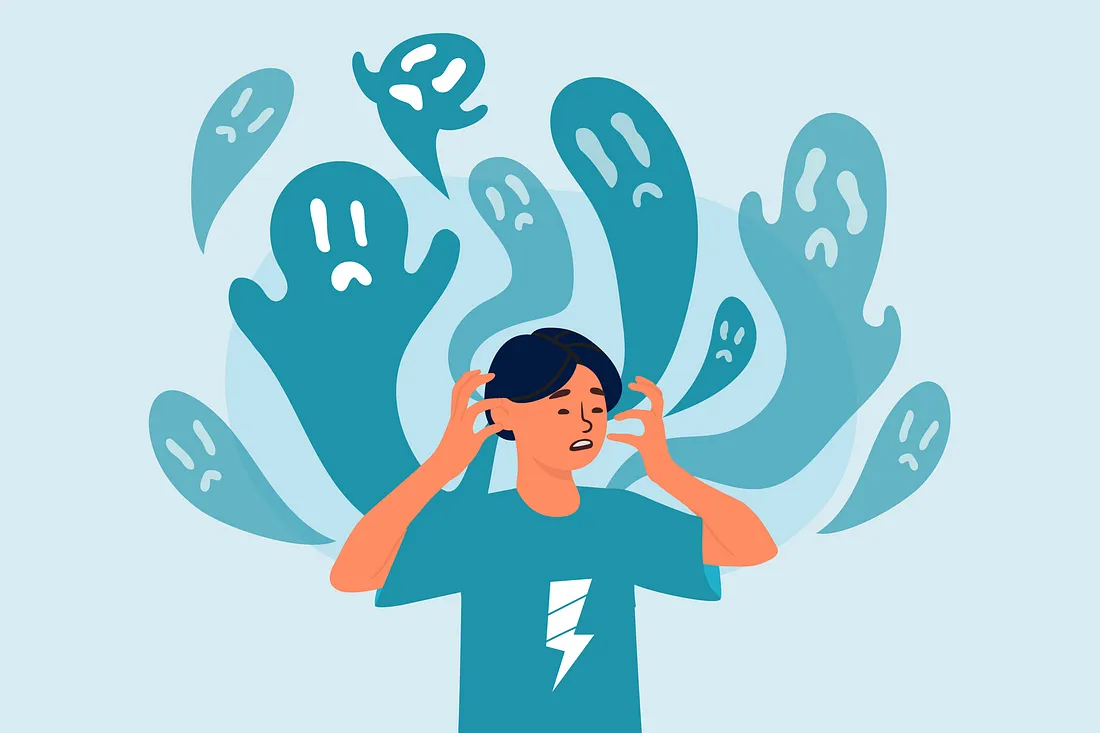Understanding Hallucinogen Persisting Perception Disorder (Flashbacks)

What is Hallucinogen Persisting Perception Disorder (Flashbacks)?
Many individuals who consume hallucinogenic substances experience flashbacks. At the same time, these recollections are often perceived as unsettling or merely remnants of a “bad trip,” not all find them distressing.
However, there are instances where these flashbacks become severe, distressing, and recurrent, even if the individual is no longer using the drug.
In medical terms, the Diagnostic and Statistical Manual of Mental Disorders (DSM-5) identifies and describes ongoing flashbacks after the primary effects of a drug as hallucinogen persisting perception disorder (flashbacks).
Signs
A drug-induced flashback gives the feeling of reliving a drug’s effects long after its actual effects have subsided. This is commonly linked to hallucinogens like LSD or magic mushrooms.
Such flashbacks can emerge days or weeks after drug consumption but might also arise months or years post-cessation.
These episodes are typically shorter and less intense than the original drug experience, often lasting moments, and more mentally manageable than a full-blown trip.
- Hallucinogen persisting perception disorder (HPPD) symptoms include:
- Seeing an object even when it’s no longer present (palinopsia)
- Misinterpreting movement in peripheral vision
- Bursts of colors
- Visual hallucinations, particularly geometric patterns
- Afterglows or lingering visuals
- Non-living objects seem animated (like walls seeming to breathe)
- Enhanced colors
- Objects seeming larger (macropsia)
- Objects seeming smaller (micropsia)
- Moving objects leaving visual trails
- Visual disturbances resembling static or graininess
Surroundings or individuals might appear strange or absurd, or the person might feel detached. This can be unsettling or embarrassing, especially in social contexts.
Identification
Commonly diagnosed in those with a history of drug use, HPPD can manifest even after exposure to drugs like LSD, PCP, MDMA, or cannabis.
Concurrent mental health conditions often seen in HPPD patients, though not diagnostic criteria include:
- Anxiety
- Bipolar disorder
- Major depression
- Schizophrenia
If you or someone you know faces severe and regular flashbacks, consult a healthcare professional. Being transparent about past and present drug use and mental health history is crucial.
The healthcare provider’s goal is to assist, not to pass judgment.
As per the American Psychiatric Association, HPPD diagnosis requires:
- Post-hallucinogen use effects
- Significant distress or dysfunction due to these symptoms
- Awareness that these are drug-induced experiences
Origins
Flashbacks might occur spontaneously or due to triggers like fatigue, anxiety, or stress. Such triggered episodes can be particularly challenging, amplifying feelings of vulnerability and confusion.
Sometimes, merely reminiscing about a hallucinogenic experience can induce a flashback.
While the exact causes of HPPD remain unclear, certain factors are ruled out, including:
- Other conditions like schizophrenia or brain injuries
- Active hallucinogen intoxication
- Stored LSD being reactivated in the body
The definitive cause of HPPD is prior hallucinogen consumption. Without prior use, HPPD cannot occur.
Varieties
HPPD has two classifications:
- Type 1: Individuals experience sporadic, short-lived flashbacks
- Type 2: Individuals face continuous visual alterations that might fluctuate
Intervention
Flashbacks typically diminish over time after discontinuing drug use. Experts emphasize the significance of drug abstinence for recovery.
Counseling
Mental health experts can address the anxiety accompanying flashbacks, empowering individuals with better control.
If someone lacks awareness of the drug-induced nature of their symptoms or if these persist or cause distress, a psychiatric evaluation is recommended to rule out other conditions like psychosis.
Pharmacology
Anti-seizure medications like Klonopin and Lamictal have been employed for HPPD treatment, but no established treatment exists for flashbacks.
Other drugs explored for HPPD treatment include:
- Benzodiazepines
- Antidepressants (for co-existing HPPD II with anxiety and depression)
- Lower doses of atypical antipsychotics like Abilify
Management
Experiencing a flashback can be unsettling. Techniques like deep breathing, grounding, and mindfulness can alleviate discomfort and anchor you to the present. Recognizing and managing triggers is also essential.
For instance, if stress is a trigger, focus on stress-relief techniques. If fatigue triggers it, prioritize rest and sleep.
Conclusion
Whether you seek solace in a trusted person or a mental health specialist, remember you’re not alone in facing HPPD and drug-induced flashbacks. Seeking assistance and support is a proactive step towards managing HPPD’s visual disturbances.




